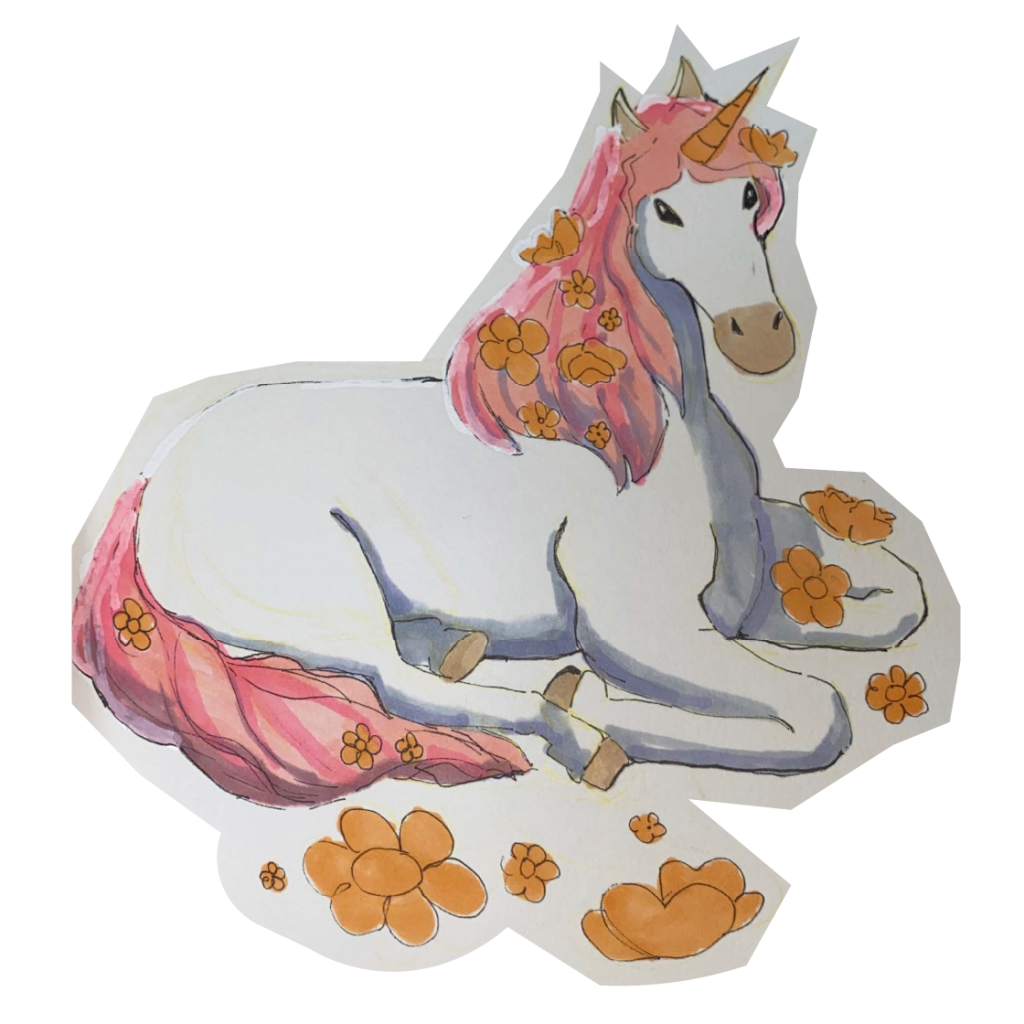The unicorn is a rare, mythical creature with a body of a strong, white horse and a long, twisted horn on the center of its head. The horn has the power to purify water and heal the sick. As the myth goes, the unicorn’s horn can be used as a cup which purifies the drink it holds. The horn is also said to protect a person against attacks and extend one’s life. Unicorns are strong, fierce animals with magical abilities. They live within forests in fantasy worlds and are only able to be captured by virgin maidens. Unicorns are too fast to be caught by men. However, if a maiden is sitting under a tree in the forest, a unicorn may approach her, captivated by her presence, and lay its head on her lap. The unicorn is then susceptible to being captured by hunters. First and foremost, the unicorn is seen as a symbol of purity and grace. Other symbols it represents is chastity, nurturing power, an emblem of the divine word, and faithfulness in marriage.
The legend of the unicorn has been around for over 10,000 years. European and Asian civilizations had mythical versions of the unicorn inspired by single-horned animals found in their land. The European unicorns were inspired by narwhals while the Asian unicorns were inspired by rhinoceroses with long horns. There is also a biblical reference to a re’em, an animal with a single horn, which is used to symbolize the horn of salvation raised by Christ. In other eras, other versions of the unicorn exist in China, Africa, South America, Greece, and in parts of Europe. The similarity of these unicorns is that they all had a single horn and a magical ability to cure. The unicorn was believed to be real in some cultures. It is possible there was an animal called a unicorn which became extinct.

The first writing about the unicorn was by Ctesias, a Greek doctor, in the 4th century BCE. Unicorns are found in art throughout many centuries, often depicted as being hunted by man. Today, unicorns have become popular as toys within modern culture. The magical fantasy of the unicorn has changed. It has become a cultural term referring to “a light-hearted spirit” or something which is “weak and frivolous”.
